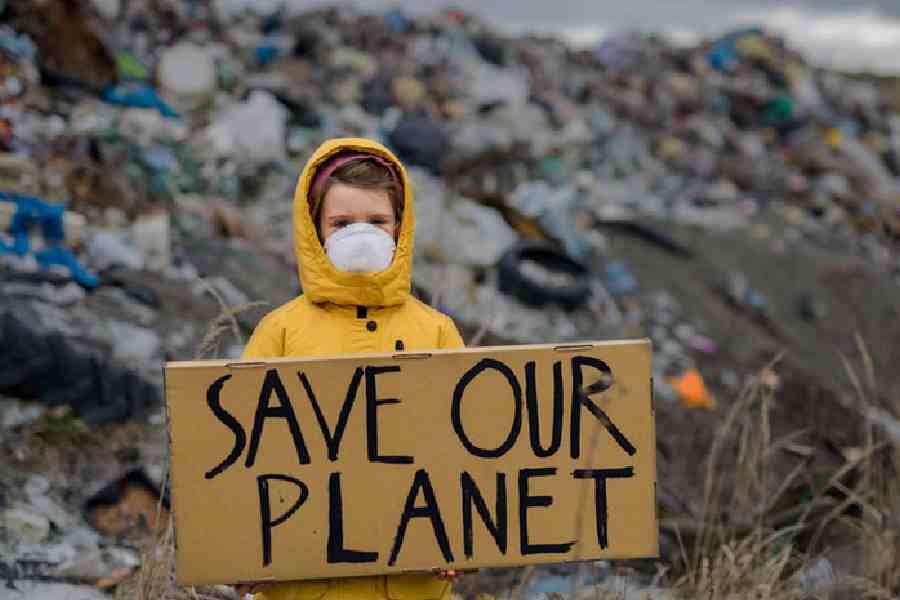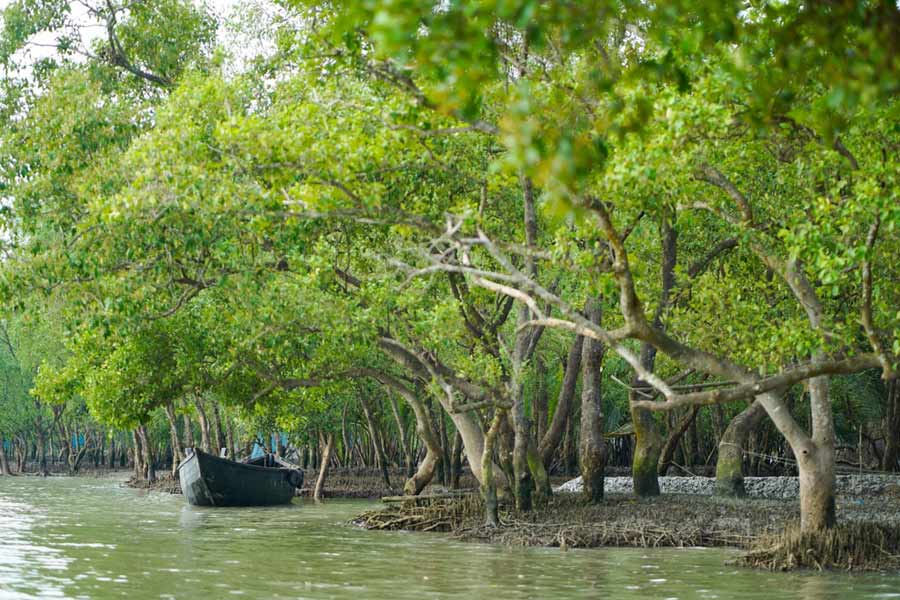Most G20 members, including the US, Australia, Canada, Saudi Arabia and Turkey, need to significantly step up climate action, according to a Climate Accountability Matrix launched at COP29 here on Tuesday.
The Climate Accountability Matrix (CAM) is a first-of-its-kind assessment tool from the Global South to analyse countries’ performance in climate aspects beyond mitigation, including adaptation and means of implementation.
As against the rich nations, countries from the Global South, such as India and South Africa have made significant efforts in climate action by actively participating in key agreements, undertaking reasonable efforts domestically and adhering to their obligations, the CAM, featured in a report by independent, New Delhi-based think tank the Council on Energy, Environment and Water (CEEW), found.
The CEEW report — Are G20 Countries Delivering on Climate Goals? Tracking Progress on Commitments to Strengthen the Paris Agreement — unveiled at the COP29 here introduces the CAM as a benchmark for evaluating climate performance.
More than 190 countries have gathered at this Azerbaijan capital for the 29th round of annual climate negotiations, the Conference of Parties, COP29.
Despite COP28’s ambitious goals, developed countries have fallen short on accountability, a critical aspect emphasised by CEEW CEO Arunabha Ghosh.
He urged COP29 to prioritise holding countries responsible, stating, “The COP29 must be about accountability. Developed countries, as the largest historical emitters, must expedite emissions reduction, while also raising climate finance both in quality and quantity.” “Without improved funding, the poorest will continue to bear the brunt of climate impacts, undermining sustainable development,” Ghosh said.
The CEEW study placed G20 countries in four categories: leaders, reasonable efforts, limited efforts, and needs improvement.
Notably, none of the G20 countries qualified as climate leaders.
Developed nations such as France and the UK showed strong international cooperation, while developing countries such as India and South Africa demonstrated notable domestic efforts.
However, major emitters, including the US and Canada, continue to exhibit inconsistent participation in climate agreements, casting doubt on their commitment, it said.
But even the countries making reasonable progress must improve sectoral robustness and create an enabling environment for ambitious climate actions, the report pointed out.
In terms of stepping up ambitions, India is demonstrating leadership, the report highlighted.
“Between 2020 and 2030, Indian policies for the power, residential, and transport sectors — such as the National Solar Mission, UJALA programme, and FAME scheme for EVs — will reduce emissions by almost 4 billion tonnes compared to a no-policy scenario. This reduction is equivalent to nearly 1.6 times the European Union’s CO2 emissions in 2023,” the report said.
These policies have pushed India towards a higher share of renewables in its energy mix, increased adoption of electric vehicles, and improved energy efficiency in domestic air conditioning and lighting. However, scaling India’s renewables beyond 1,500 GW will face land, water and climate challenges, it said.
The CAM highlighted critical gaps among G20 countries across five main themes: International Cooperation, Sectoral Robustness and Renewable Growth, Climate Finance Shortfalls, Enhanced Climate Adaptation and Loss and Damage Funding, and Data Transparency on Loss and Damage.
The EU, South Korea, India, Germany, and China, among others, show reasonable efforts overall. For instance, in the renewables segment, Brazil and India perform relatively better than other developing countries, while South Africa demonstrates strong domestic climate governance and climate disclosures, it said.
Developed countries often engage inconsistently, with the US, Canada, and Japan missing key deadlines and failing to meet transparency requirements. In contrast, India and South Africa were noted for actively adhering to agreements and making comprehensive disclosures.
While some countries showed progress in renewable energy, others, especially fossil fuel-reliant economies such as Saudi Arabia and Turkey, demonstrated limited sectoral robustness. India and Brazil led in renewables, with policies projected to reduce India’s emissions by 4 billion tonnes between 2020 and 2030.
The report underscores an urgent need for increased climate finance, proposing that COP29 set an annual target of USD 1 trillion in concessional finance. Despite the USD 100 billion target for 2020, developed nations have collectively fallen short, contributing far less than pledged.
The report highlights that adaptation finance lags far behind mitigation funding, receiving only a third of the resources allocated. Countries must address climate adaptation, particularly for developing nations that remain most vulnerable to climate-induced disasters.
While Loss and Damage (L&D) costs are projected to reach up to USD 3.1 trillion annually by 2050, over 65 per cent of climate events lack precise economic data, hampering evidence-based policy responses. CEEW calls for a structured approach to data collection and transparency.
CEEW's report calls for three specific actions at COP29: speeding up net-zero timelines for developed nations, creating transparent climate finance frameworks, and ensuring that the most vulnerable countries receive targeted financial and technical support.
Dr Ghosh remarked, “COP29 must emphasise accountability, accelerate ambitions, and close the finance gap to truly protect those most affected by climate extremes.”
Except for the headline, this story has not been edited by The Telegraph Online staff and has been published from a syndicated feed.










